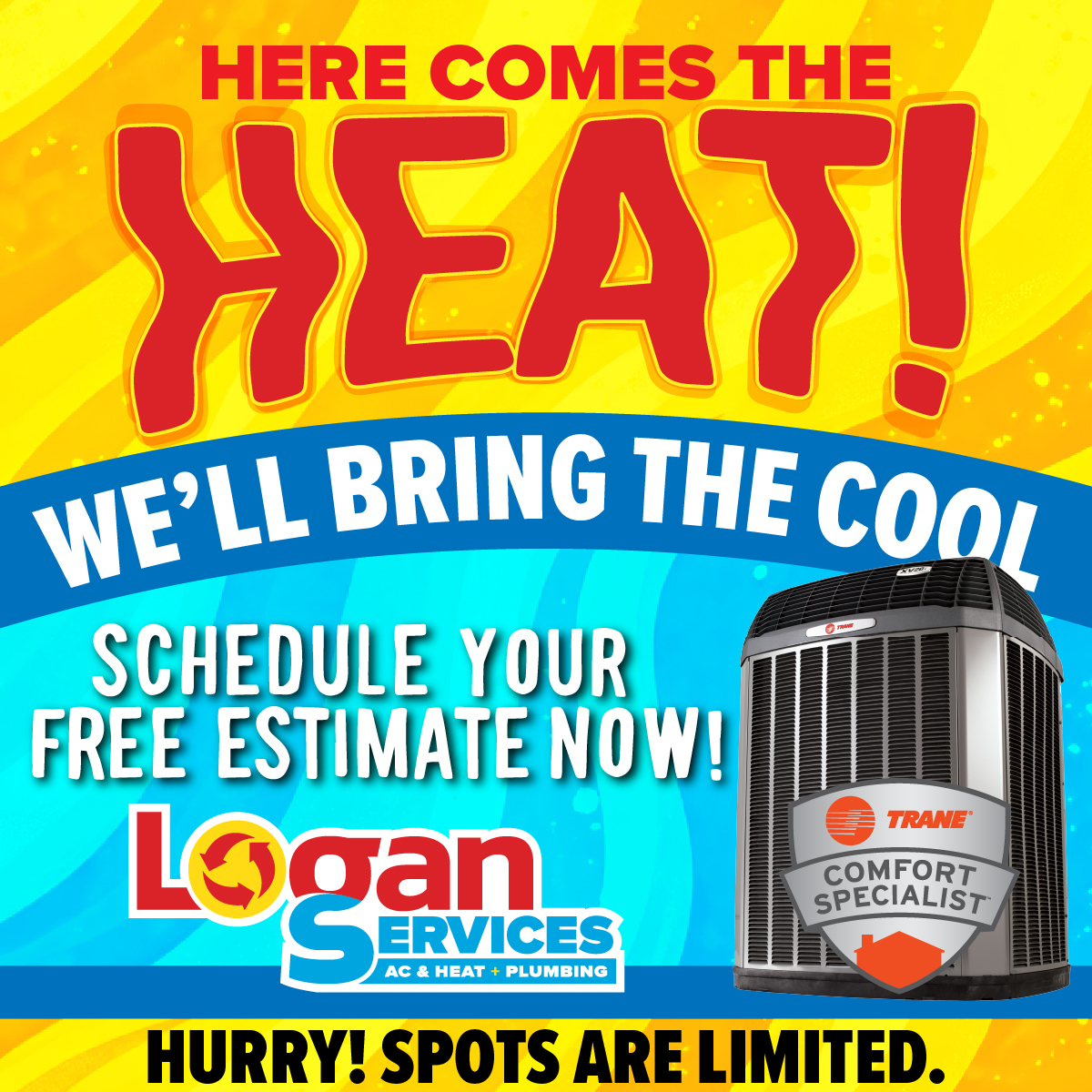If your current air conditioner is on the fritz or no longer keeping your home cool during the hot summer months, it may be time to invest in a new system. Purchasing a new air conditioner is a major decision that requires careful consideration of the type of system, features, installation requirements, and costs. This comprehensive guide provides expert advice to help you make the right choice.
What Signs Indicate You Need a New AC Unit?
Before delving into the key factors to weigh when buying a new air conditioner, let’s go over some telltale signs that your current AC is failing and needs replacement:
- Frequent breakdowns and the need for repairs
- Spiking energy bills from an inefficient, outdated AC model
- Inadequate cooling that leaves some or all rooms uncomfortably warm
- Strange noises like grinding or buzzing when the unit turns on
- No airflow is coming from the vents, indicating a freon leak
- Water pooling near the indoor unit, signaling a clogged AC drain line
Pay attention to these warning signs so you can proactively replace your AC before it breaks down at the height of summer.
Central Air Conditioners: An Overview
The most common and effective type of new air conditioning system for whole-home cooling is a split duct central air conditioner. This system contains an outdoor compressor and condenser paired with an indoor air handler unit to circulate cooled air through metal ductwork running to different areas of your home.
Central ACs offer enhanced comfort, efficiency, and convenience compared to room air conditioners. Powerful fan motors in the air handler provide whole-home airflow, while dual-speed compressors modulate cooling output based on conditions. Smart thermostat controls allow you to customize comfort settings.
Key Features To Compare When Purchasing a New Central Air Conditioner
Properly Sized BTU Output
One of the most important features to evaluate is the BTU output of the AC unit. BTU stands for “British Thermal Unit” and indicates the amount of energy required to heat or cool one pound of water by one degree Fahrenheit.
When installing a new central air system, it’s critical to match BTU output to the square footage of your home to find the perfect size for your AC unit. A professional HVAC contractor can calculate the ideal capacity, which typically ranges between 15 to 25 BTUs per square foot. Oversized AC units cycle on and off frequently, wasting energy, while undersized models run constantly without adequate cooling.
SEER Efficiency Ratings
Focus your search on ENERGY STAR’s Most Efficient central AC models, which carry a Seasonal Energy Efficiency Ratio (SEER) of 16 or greater. The SEER rating signifies the estimated operating cost over an entire cooling season.
A higher number translates to greater energy savings — a SEER 16 unit is up to 20% more efficient than today’s minimum standard model. Maximizing efficiency keeps utility bills in check while reducing your home’s environmental impact.
Convenient Modes and Settings
Look for an air handler and thermostat that offer modes for cooling, fan circulation, and dehumidification. Customizable settings like a programmable schedule, varied fan speeds, smart home integration, and a vacation mode that conserves energy deliver added control over your comfort.
Low Sound Levels
Check the decibel rating to gauge how audible the outdoor AC compressor will be from within your home. Noise below 55 decibels is considered a quiet background hum, while models rated higher than 70 decibels can sound moderately loud when running. Investing in a quieter unit is worthwhile if the outdoor section is positioned close to windows.
Connectivity and Convenience
Many new central ACs provide app control; voice commands through digital assistants like Alexa, data monitoring, and smart optimization when paired with compatible thermostats and WiFi. If home automation for convenience and efficiency appeals to you, look for models with smart capabilities.
Installation Factors for Central Air Conditioners
While swapping out an existing central AC system is fairly straightforward, installing cooling in a home for the very first time involves more extensive work. Key installation considerations include:
Electrical Service Requirements
Central ACs require a dedicated 240-volt electrical circuit with sufficient amperage capacity and good voltage regulation. Upgrading the main electrical panel or installing new wiring from the panel to the outdoor unit may be necessary to support the electrical loads of a new compressor.
Professional Installation
Due to refrigerant lines, condenser pads, duct connections, and electrical requirements involved with central ACs, professional installation is strongly advised. While determined DIYers can handle swapping out existing indoor evaporator coils and air handlers, the outdoor condensing unit should be installed by licensed HVAC technicians.
Air Duct Considerations
Your existing ductwork must be evaluated to ensure it can deliver sufficient static pressure and airflow to handle the cooling demands of a new high-efficiency AC system. Leaky, disconnected, or undersized ducts will undermine performance. Duct repairs, sealing, insulation, or upgrades may be required to optimize cooling, moisture removal, indoor air quality, and operational sound levels.
Purchase Costs and Warranties for New Central ACs
You’ll make a major investment when purchasing a new central air conditioning system. Cost factors include:
- Equipment Purchase Price: New ENERGY STAR central ACs range in cost depending on the brand, model, capacity, and features. Two-stage compressors and variable capacity inverters fall at the top end, while budget single-stage models carry lower price tags.
- Installation Cost: HVAC installation cost can change depending on the complexity involved. Electrical upgrades, ductwork modifications, and other site prep add more. System sizing, permits, and disposal of the old AC are included in the quote.
- Energy Usage Expenses: An efficient central AC keeps electricity costs in check. Estimate yearly operating costs by dividing the BTU output by the SEER rating to gauge electricity consumption—factor in your electric rate, seasonal runtime, and settings.
- Warranties: Look for models backed by ten-year or longer warranties on the compressor and at least five years on the parts. Register your equipment to activate extended protections from reputable HVAC brands like Trane, Lennox, Rheem, and Carrier.
- Budgeting for Your New AC Unit
Top Air Conditioner Brands on the Market
Trane, Lennox, and Carrier rank as the leading air conditioner brands in the industry based on SEER ratings, reliability, warranties, technical support, and customer service satisfaction. Here’s an overview of each company’s strengths:
Trane: Regarded as the gold standard for durability, performance, and innovation, Trane central AC systems leverage variable speed inverter compressors combined with Spine Fin coils and climate control to deliver best-in-class efficiency, humidity removal, and cooling power. Despite premium price tags, Trane earns high marks across the board.
Lennox: Offering a broad selection of central ACs from 14 SEER baseline models to 23 SEER Signature Series behemoths, Lennox is known for near-silent sound levels along with strong output. The Dave Lennox Signature® Collection carries extended 12-year compressor warranties. Responsive dealer networks earn customer loyalty.
Carrier: This internationally recognized brand produces central air conditioners spanning affordable entry-level to sophisticated humidity-controlling variable speed systems. The highest efficiency Carrier Infinity® series leverages superior heat transfer, multi-stage operation, and smart diagnostics for precision comfort and savings.
While these HVAC leaders charge a premium over hardware store brands, the adage “you get what you pay for” applies. Investing more upfront delivers bigger dividends through lower operating costs, reduced repairs, and extended equipment lifespan.
Investing in a brand new, properly matched central air conditioning system ensures your home stays comfortable for years while maintaining efficiency and healthy air quality. Carefully weigh the purchase and installation considerations covered in this guide to make an informed decision maximizing value and reliability. With smart research and help from the right HVAC technician, you’ll secure the perfect cooling solution to meet your family’s needs and budget.
The Logan Difference
Logan A/C & Heat is a family-owned and operated company that has been providing exceptional HVAC services since 1969. What sets us apart is our steadfast commitment to customer satisfaction through quality workmanship, communication, and community service.
Our experienced team of installers completes a rigorous training program so they can expertly install new systems while minimizing disruption to your home. We make sure to have all necessary parts on hand before the installation date to avoid any delays or frustration.
During equipment replacement, our install managers diligently oversee each step, ensuring proper protocols are based on a comprehensive checklist. With decades of hands-on expertise in residential HVAC systems, they properly set up new units and walk customers through operation, maintenance, and troubleshooting before leaving the premises.
We stand behind our workmanship by helping validate warranty coverage on parts from the manufacturer. Our open lines of communication don’t end when the job is finished – customers can always reach out with questions or issues.
Giving back locally and helping neighbors in need are core pillars of the Logan identity. We frequently donate contest giveaways and contribute services to assist community causes. Our technicians are known to go out of their way to help friends and seniors in a bind get heat and cooling running again.
This combination of seasoned experience, training, accountability, caring customer relationships, and community goodwill set Logan A/C & Heat apart. We take pride in living up to our reputation for quality while making the installation process smooth and satisfying. Contact us today to experience the Logan Difference!
Frequently Asked Questions (FAQs)
What size central air conditioner do I need?
The correct BTU capacity depends on square footage, local climate, window area, insulation level, sun exposure, and other factors. An HVAC pro should perform manual J load calculations based on your home’s specifics to right-size the system.
Which is better: a single-stage or two-stage compressor?
Two-stage models run more efficiently at lower capacities during milder days before ramping up full power to meet spikes in cooling demand. The modulating output reduces energy usage over time.
Do I need to upgrade my electrical panel or wiring?
Central ACs necessitate dedicated 240V circuits. If your existing infrastructure lacks the amps or your panel is already near max capacity, upgrades will be in order prior to installing the new outdoor unit.
What efficiency level is best?
Look for ENERGY STAR’s most Efficiently rated air conditioners with SEER ratings of 16 or higher. While pricier upfront, elevated efficiencies yield savings of up to 20% on electrical bills over time.
Should I get multiple quotes from HVAC companies?
Yes, always compare bids from 3-4 highly-rated local HVAC contractors. Many provide free quotes to win your business while offering competitive pricing on equipment, installation, ductwork modifications, wiring, permits, and disposal of old AC equipment.




















